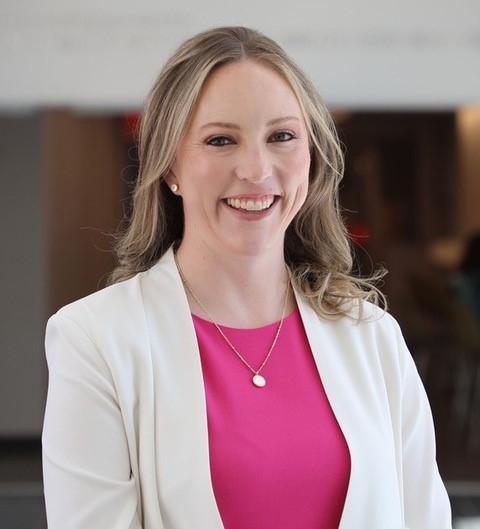Candidate for Nominating Committee, 2025 - 2026
Jennifer Majumdar, PhD, MSN, CRNA Fast Facts About Jennifer
Jennifer Ross Majumdar, PhD, CRNA, is the founding Assistant Specialty Director of the DNP Nurse Anesthesia program at Hunter-Bellevue School of Nursing and a Nurse Scientist at Memorial Sloan Kettering Cancer Center. She has over a decade of clinical experience and has contributed extensively to perioperative research and the education of future CRNAs. Dr. Majumdar is dedicated to faculty development, curriculum innovation, and competency-based education. She is actively involved in professional advocacy and serves as the Co-Chair of the Educational Program Committee for NYSANA, where she supports the advancement of CRNA education and professional development.
What are the biggest challenges facing the profession?One of the biggest challenges facing the CRNA profession is ensuring high-quality education and faculty development to meet the increasing demand for CRNAs. As the need for advanced practice providers continues to grow, DNP Nurse Anesthesia programs must expand while maintaining rigorous standards of education and clinical training. However, recruiting and retaining experienced faculty members who can effectively integrate evidence-based practice, clinical expertise, and competency-based teaching is becoming increasingly difficult. Supporting and developing faculty through mentorship, continuing education, and leadership training is essential to ensure that future CRNAs are well-prepared to navigate the complexities of modern healthcare. What experiences, ideas, connection or resources do you have that would allow you to help with those challenges?I have extensive experience in curriculum development, faculty mentorship, and competency-based education through my role as the founding Assistant Specialty Director of the DNP Nurse Anesthesia program at Hunter-Bellevue School of Nursing. I have worked closely with faculty to implement evidence-based teaching strategies and ensure that students are prepared for real-world clinical practice. My involvement as Co-Chair of NYSANA’s Educational Program Committee has also provided me with insight into the continuing education needs of CRNAs and how to create meaningful learning opportunities that enhance professional growth. Name one skill or strength you possess that is unmatched by your colleagues or peersMy ability to bridge clinical practice, education, and research sets me apart. I excel at integrating evidence-based practice into both curriculum design and clinical training, ensuring that students and practicing CRNAs are equipped with the most current knowledge and skills. This unique combination of expertise allows me to translate complex research findings into practical applications, enhancing both educational outcomes and patient care. What do you love about being a CRNA? What drew you to the profession?I love the precision, autonomy, and responsibility that come with being a CRNA. Providing safe and effective anesthesia care in high-stakes environments is both challenging and rewarding. What initially drew me to the profession was the opportunity to make a direct impact on patient outcomes while utilizing advanced clinical skills and critical thinking. Over the years, my passion has expanded to include mentoring and educating future CRNAs, helping them develop the knowledge, confidence, and skills they need to excel in their practice. Please provide at least one idea you believe will engage or involve members to advance NYSANA’s mission.One idea to engage and involve NYSANA members is to develop a faculty mentorship and development program that pairs experienced CRNA educators with new or aspiring faculty. This initiative would provide structured guidance on curriculum design, competency-based education, and effective teaching strategies, ensuring that faculty members are well-prepared to support student success. By investing in faculty development, NYSANA can strengthen the foundation of CRNA education and ensure that future generations receive high-quality instruction that meets the evolving needs of the profession. |

